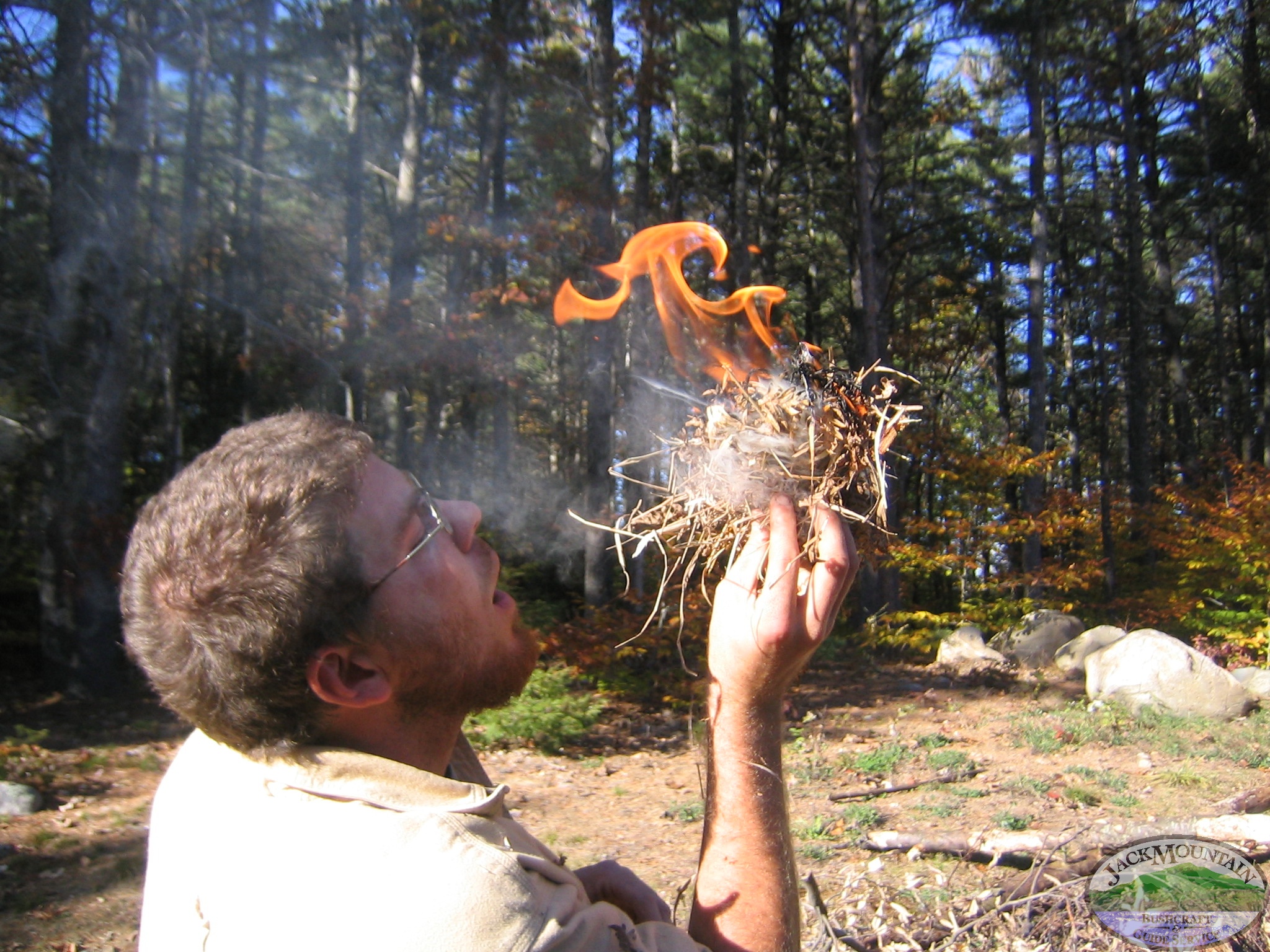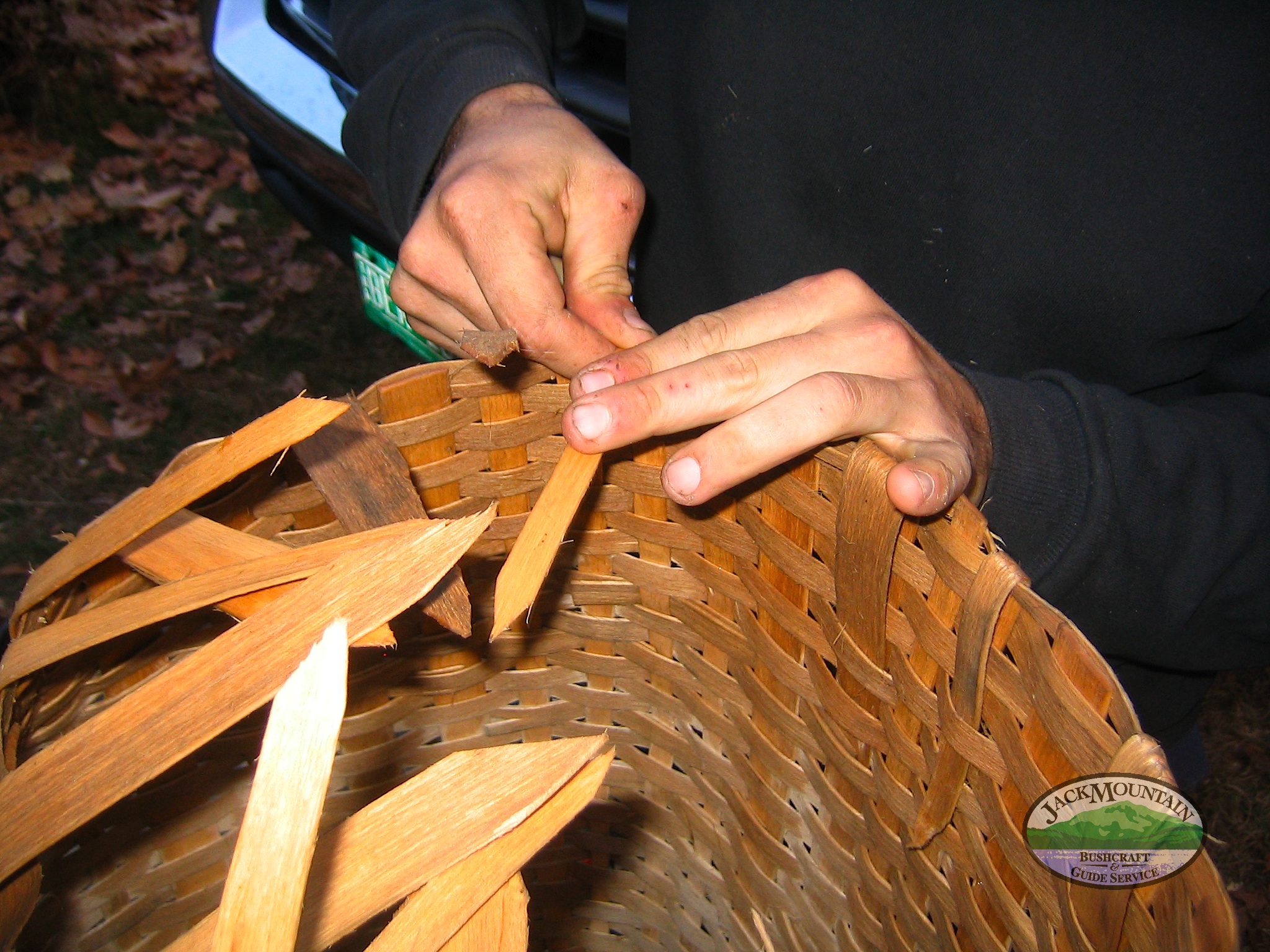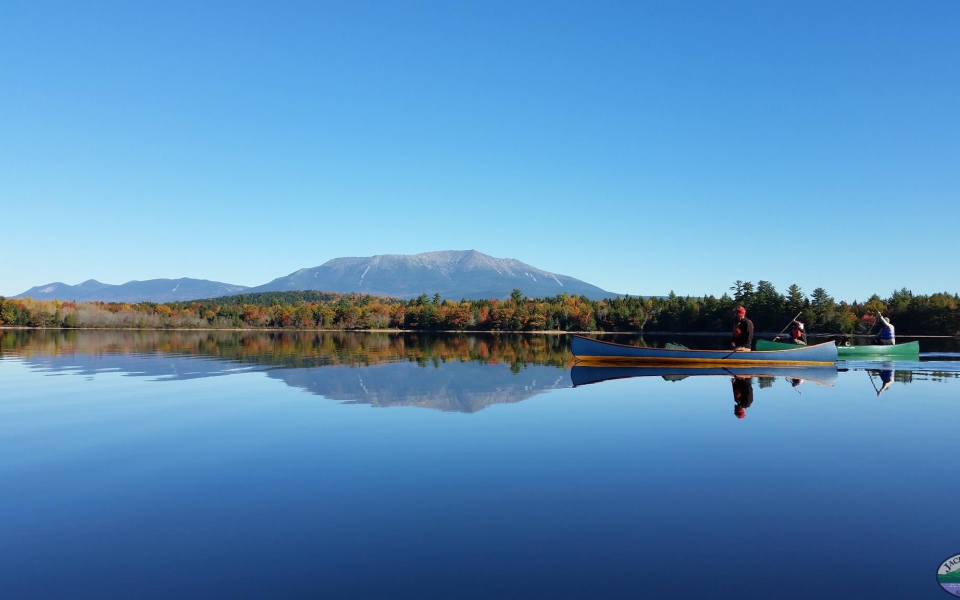· Length: 9-Weeks
· Spring Term
· Max. Size: 10
· College Credits: 10
· GI Bill: Yes
· Americorps: Yes
· Tuition: $7250
Canoe Expedition & Outdoor Leadership In Maine
Professional Training For Wilderness Guides
College-Accredited, GI Bill Approved
Course Calendar Register Now
Note: After the 2022 course, we’re mothballing this course for a bit, combining the curriculum with the Wilderness Bushcraft Semester(WBS). The two courses were very similar ever since this program split off from the WBS. If you are interested in this program, take a look at the WBS.
Life on the trail is real. It’s filled with realities that modern life is not. The details matter more. The skills matter more. Life is richer.
But life on the trail is also physically harder than modern life. There’s more to do, more energy expended, miles to make, firewood to cut and weather to deal with.
In the spring of 2023 we’re offering a new twist on our Wilderness Guide Training Semester. The curriculum will be our standard semester curriculum, but we’ll spend more time canoeing and living on the trail along the remote waterways of northern Maine.
This course is. It is designed to challenge you. From cold and snow to high water, to bugs – you’ll see it all.
When you train hard, life is easier. When you train easy, life is hard.
We’ll start while the snows are still deep at the field school. As the snow melts, we’ll spend the first 3 weeks learning about snowshoes, winter tents, wood stoves, and other cold weather necessities. We’ll also make canoe paddles using simple hand tools.
During those initial weeks we’ll dive deep into the core Jack Mountain curriculum: fire, axe, knife, saw, weather, cooking, tree ID, etc. As soon as there’s open water, we’ll be learning the proven Jack Mountain traditional methods of expedition canoeing; paddling, poling and lining.
In early May we head out on our first expedition through the remote North Maine Woods. It will be cold (air and water) and challenging with varying degrees of whitewater. On the trip we will basecamp in a few spots to work on canoe skills. With hot tents we will be ready for snow. Planning for cold water immersion will be part of our daily reality. Through training, we will be ready for whatever challenges come our way.
For the remainder of the course we’ll alternate time on the trail with time at the field school.
When we start the course, the instructors will be the guides. As you become more skilled, the instructors will step back. By the end of the course, the students will be the guides.
We’ll work hard to teach you everything you need to know to pass the state exam to become a Registered Maine Guide. It will be a lot of work.
By the end of the course you’ll have paddled, poled and lined close to 300 miles. You’ll have cooked countless meals over an open fire. You’ll know the routes, the campsites, the hazards, and the skills needed to guide trips on your own. You’ll be well on your way to becoming a professional wilderness guide, whether for friends or professionally. The woods and waters will be your home.
As part of the course, students will receive a season camping pass to the North Maine Woods. This will allow them to spend the rest of the summer and fall camping in the North Maine Woods if they so desire.
The goal of the course is to train the best wilderness guides in the USA, and along the way to provide an authentic wilderness experience unavailable elsewhere.
If you’re looking for a challenge and you want to have an authentic experience living in the big woods north of Katahdin, if you want to differentiate yourself from the rest of the bushcraft herd that films endless outdoor gear reviews in suburbia, or if you’re looking to become a legitimate wilderness guide, consider this opportunity.

Blowing a bow drill coal in a tinder bundle into a flame.
7 Elements Of Jack Mountain Programs
Skill – Journey – Craft – Nature – Culture – Sustainability – Self
Drawing on the philosophies of bushcraft we’ve developed over almost 20-years of field courses, the traditions of Maine Guides that go back generations, the Cree concept of miyupimaatisiium (translated as “being alive well”) and the Scandinavian idea of friluftsliv (translated as “open air life”), the following seven elements comprise the components of our semester and yearlong programs.
1. Skill – Learn by doing. Too much of modern education is theoretical, abstract and sedentary, where the head is engaged but the hands are not. We depart from that norm with a tangible, hands-on approach that emphasizes being an active participant in the natural world and in life. Our 21-point curriculum focuses on necessary skills for the professional outdoors person.
2. Journey – Travel through remote parts of the north woods alongside professional guides, directly experiencing what you’re learning. Live in the bush for extended lengths of time where the focus isn’t simply how-to, but living with efficiency and grace that come with extensive experience.
3. Craft – Explore the world with your hands. Build useful items from materials gathered on the landscape. Man needs tools to live. Making these necessary items from materials gathered from the landscape bonds you to the land and makes you self-reliant.
4. Nature – Learn the language of the world around you. Study the weather, edible/medicinal plants, fungi, mammals and their tracks, birds, fish, mollusks, insects, amphibians, reptiles, rocks, minerals, soil, water, ice, celestial bodies and ecology.
5. Culture – Culture is the human element, or soft skills, which make or break an expedition. Learn management and leadership skills crucial to the professional guide and outdoor leader, as well as how to instruct effectively.
6. Sustainability – Life is different with minimal infrastructure. Learn the techniques of living a simple, low-tech life with minimal inputs by living them every day. Compost everything that will rot, grow food, reuse and repurpose resources, care for the land and leave it healthier for future generations.
7. Self – Learn your specific needs and boundaries. In a world of generalizations, it’s important to know exactly what you need to function well. How much sleep do you need to function? How much water? How much of a bed do you need to make in order to sleep well? This is about intimately knowing yourself and what you need to do to keep your body alive and well. The only way to learn it is to live it.
Course Calendar · Apply Now










